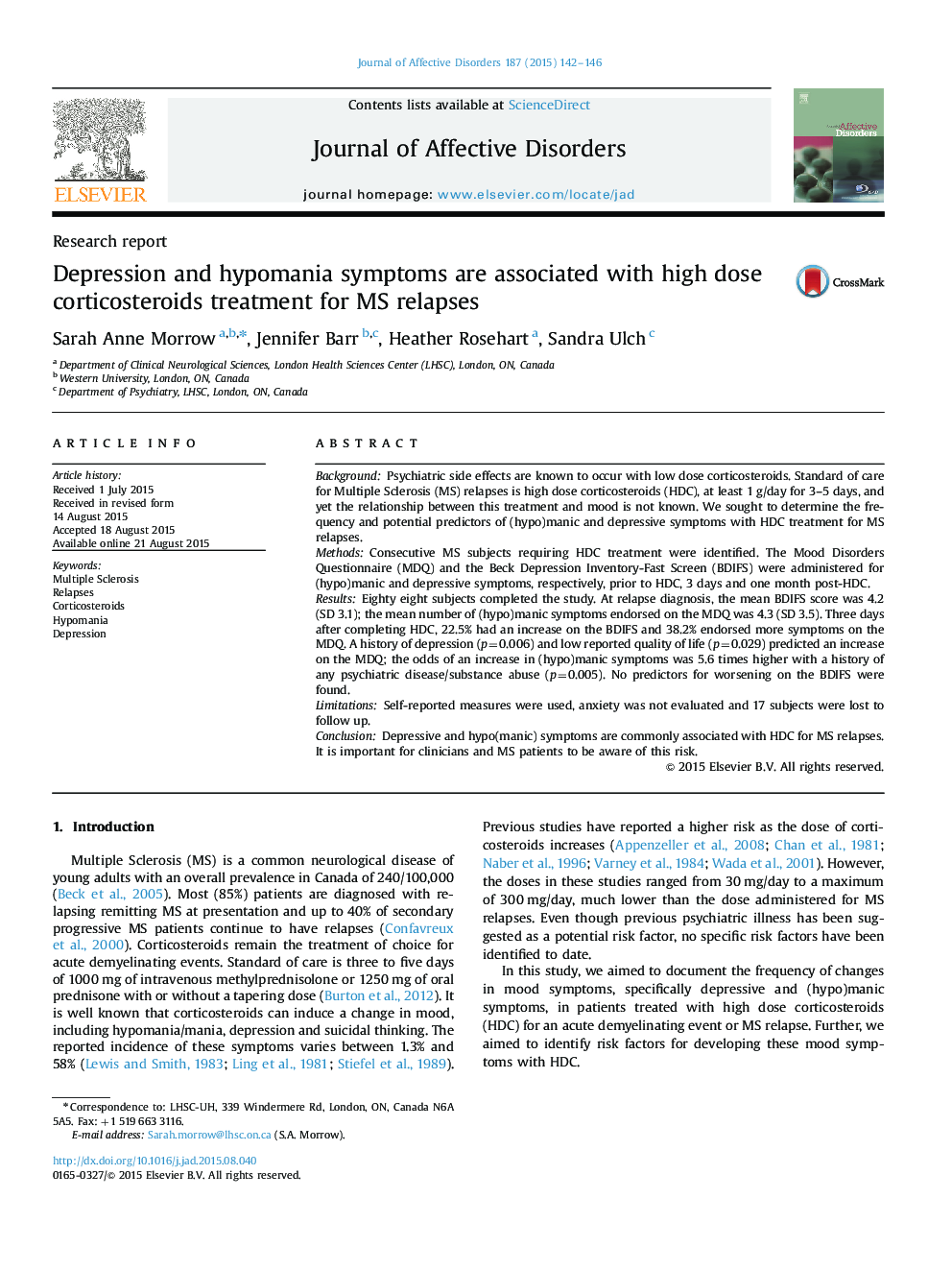| Article ID | Journal | Published Year | Pages | File Type |
|---|---|---|---|---|
| 6230979 | Journal of Affective Disorders | 2015 | 5 Pages |
â¢Depression increased in 22.5% of patients treated with high dose corticosteroids for MS relapses.â¢Hypomanic symptoms increase in 38.2% of MS patients treated with high dose corticosteroids.â¢A history of depression was predictive of hypomanic symptoms with high dose corticosteroids.Depressive symptoms were commonly present at the time of relapse diagnosis.A personal or family history of depression was associated with higher BDIFS at relapse diagnosis
BackgroundPsychiatric side effects are known to occur with low dose corticosteroids. Standard of care for Multiple Sclerosis (MS) relapses is high dose corticosteroids (HDC), at least 1Â g/day for 3-5 days, and yet the relationship between this treatment and mood is not known. We sought to determine the frequency and potential predictors of (hypo)manic and depressive symptoms with HDC treatment for MS relapses.MethodsConsecutive MS subjects requiring HDC treatment were identified. The Mood Disorders Questionnaire (MDQ) and the Beck Depression Inventory-Fast Screen (BDIFS) were administered for (hypo)manic and depressive symptoms, respectively, prior to HDC, 3 days and one month post-HDC.ResultsEighty eight subjects completed the study. At relapse diagnosis, the mean BDIFS score was 4.2 (SD 3.1); the mean number of (hypo)manic symptoms endorsed on the MDQ was 4.3 (SD 3.5). Three days after completing HDC, 22.5% had an increase on the BDIFS and 38.2% endorsed more symptoms on the MDQ. A history of depression (p=0.006) and low reported quality of life (p=0.029) predicted an increase on the MDQ; the odds of an increase in (hypo)manic symptoms was 5.6 times higher with a history of any psychiatric disease/substance abuse (p=0.005). No predictors for worsening on the BDIFS were found.LimitationsSelf-reported measures were used, anxiety was not evaluated and 17 subjects were lost to follow up.ConclusionDepressive and hypo(manic) symptoms are commonly associated with HDC for MS relapses. It is important for clinicians and MS patients to be aware of this risk.
